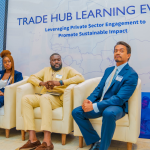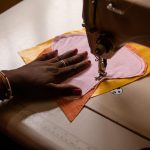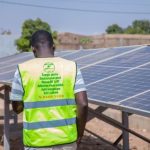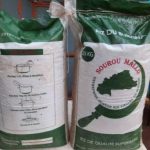Investment Manager in Sinergi Burkina, Davy Soubeiga analyzes the impact of the covid-19 pandemic on the investment strategy and on entrepreneurs supported by Sinergi Burkina.
Could you describe Sinergi Burkina in a few words?
Sinergi Burkina is the first investment company dedicated to small and medium enterprises (SMEs) in Burkina Faso created in 2014. We currently have 6 employees, a third of whom are women. We finance SMEs for amounts between 20 million FCFA and 200 million FCFA, taking minority stakes for a period of 4 to 7 years, and offering shareholder loans.
As an active partner, we raise additional funds for SMEs from partner programs such as the PACE program of the United States Agency for Development (USAID), I&P Acceleration in Sahel and I&P Acceleration Technologies programs initiated by Investisseurs et Partenaires for seed financing with zero interest credit, but also the Program for Economic Growth in the Agricultural Sector (PCESA) set up by the Danish Embassy with investment and operating subsidies.
We currently have 4 companies in the investment portfolio, 11 in seed, and 7 in facilitation with PCESA.
Has the covid-19 crisis had an impact on your exchanges with portfolio companies?
The global health crisis that we experienced this year has indeed had an impact on our relations with portfolio companies. We have adapted our close follow-up with entrepreneurs, giving priority to calls and video conferences. Face-to-face meetings and company visits have been reduced (while respecting the barrier measures), and even cancelled during the peak of the crisis.
How have portfolio companies been affected by the crisis?
The crisis has impacted our portfolio companies in several ways: the drop in demand has led to a drop in production in the agro-industry, the temporary closure of production units to avoid contagion. Quarantine has led to supply and distribution difficulties and a total halt to activities in the education sector. Difficulties in raising funds from financial institutions have also delayed the acquisition and delivery of production equipment. Finally, unforeseen expenses for the acquisition of hygiene materials (hydroalcoholic gel, hand washers, nose plugs, thermometers, etc.) have increased exponentially in price.
However, these companies have shown resilience, and some have even seized the opportunity to adapt their offer. This is the case of Palobde, which produces sanitary napkins for women based on woven cloth, and which was able to convert to the production of washable mufflers, thus multiplying its turnover by three.
What measures have you taken to support companies during the crisis?
We first analyzed the exposure of our supported companies, participated in strategic resilience thinking, and raised funds to help our partners face these difficulties.
How did the covid-19 crisis impact your activities?
Sinergi Burkina’s team has continued its activities by telecommuting until the gradual deconfinement started at the end of May, always in strict compliance with the measures decreed by the government. The flow of financing requests has not really decreased despite a slowdown in prospecting. On the contrary, we have received additional requests from our portfolio companies to cope with the effects of the health crisis.
The activities of the African Entrepreneurs Club’s Burkinabe cluster, however, have taken a hit. The last activation was on March 13, four days after the first cases in Burkina, and a few days before total containment.
What kind of additional support and accompaniment is needed, from I&P, public authorities, other ecosystem players… to help entrepreneurs?
The provision of financing should be encouraged, possibly with a higher ceiling. The Burkinabe State has signed a framework agreement with the Professional Association of Banks and Financial Establishments of Burkina Faso, an agreement that is part of the implementation of the Financing Fund to support companies heavily impacted by Covid-19. Loans to businesses will be at a rate of 4% through a subsidy mechanism supported by the state to the tune of 5 billion CFA francs.









